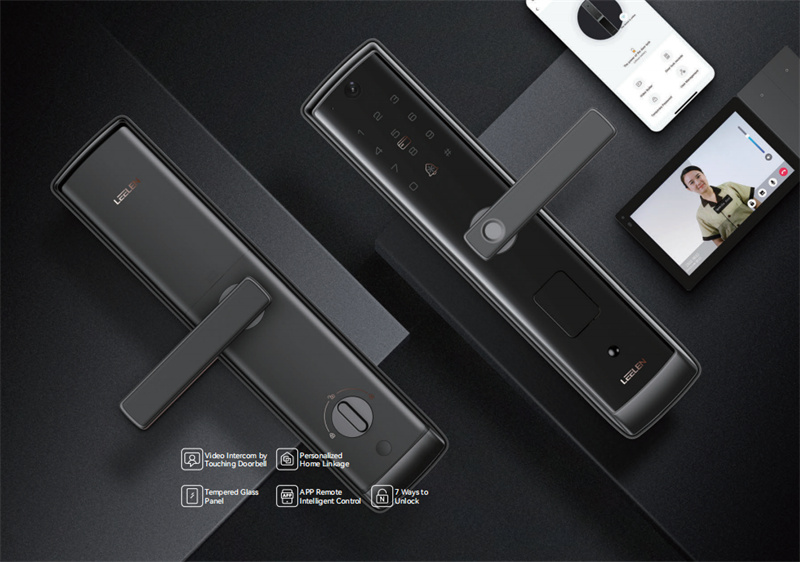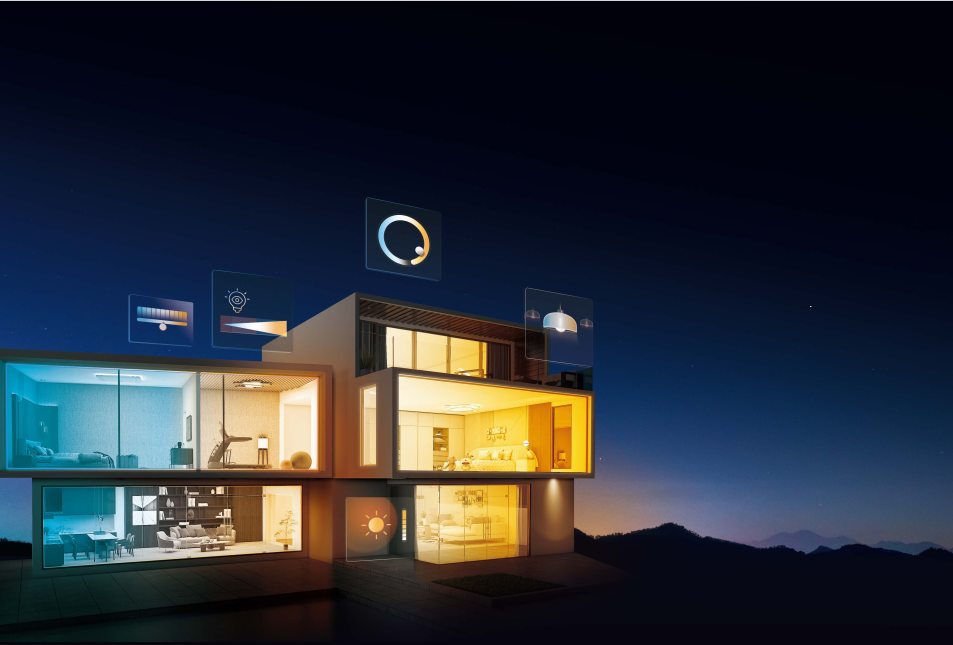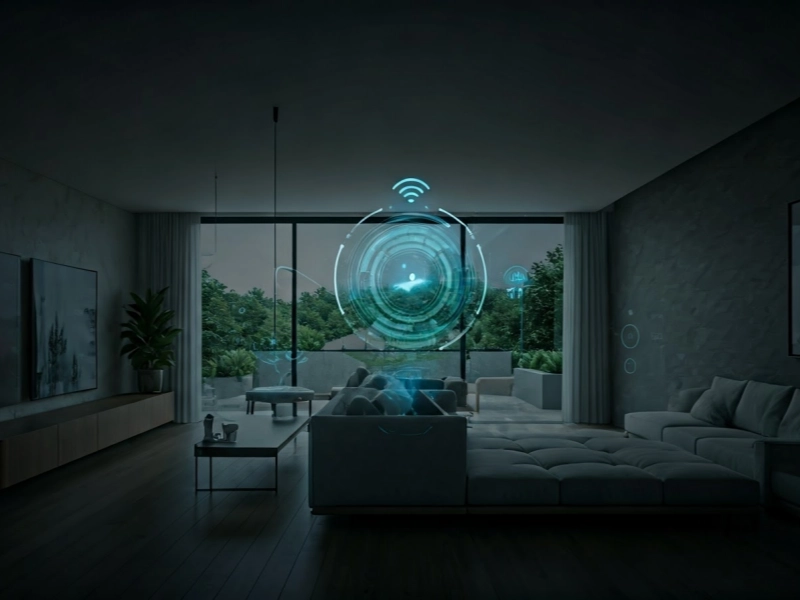Smart Locks vs. Traditional Locks: Which is Better?
Key Highlights
Smart locks offer keyless entry, remote access, and integration with smart home systems.
Traditional locks are known for their durability, affordability, and familiarity.
Both smart locks and traditional locks can utilize deadbolt mechanisms for enhanced security.
When choosing between the two, consider your budget, technical comfort level, desired features, and security needs.
Ultimately, the best lock for you depends on your individual preferences and lifestyle.
Introduction
In today’s world, technology is always changing. Even basic items like door locks are becoming smarter. Smart homes are more popular than ever. For homeowners, picking between a smart lock and a traditional lock is an important choice. It impacts their security and ease of use. Traditional locks give a sense of peace of mind. Smart locks, on the other hand, offer greater control and let you check your front door from anywhere. So, which type is best for you?
Comparing Smart Locks and Traditional Locks
Choosing between a smart lock and a traditional lock for your front door means looking at the good and bad points of each type. Smart locks have features that connect to your devices and allow you to enter without a key. They offer things like remote access, control from your smartphone, and codes for guests, making them easy and flexible to use.
In contrast, many people still prefer traditional locks. They are simple, often cheaper, and very dependable. Using a physical key gives many a sense of security, and deadbolts have been reliable for a long time.
1. Keyless Convenience of Smart Locks
One of the best things about a keyless entry door lock is that you can lock and unlock your door without a key. Smart locks make this easy using different methods. You can use a PIN code on a touchscreen keypad, a smartphone app for remote access, or even a fingerprint reader.
Think about how nice it would be to never look for your keys again, especially when your hands are full. With a smart lock, you can open your door with your smartphone before you even get there. You can also let family, friends, or service providers in easily, which is something regular locks can’t do.
Smart features like auto-lock help by locking your door on its own after a set period of time. Some smart locks even have geofencing. This means the lock uses your phone's location to open as you get close and lock when you leave. Just picture how nice it would be to come home after a long day and have your door unlock automatically as you approach.
2. Durability and Reliability of Traditional Locks
Traditional locks are known for being strong and reliable. They have simple designs that have kept homes safe for many years. The deadbolt, which has a solid bolt that goes deep into the door frame, makes it hard for someone to break in.
Unlike smart locks, traditional locks don't have any electronic parts. This means they won't malfunction or get hacked. This simplicity gives peace of mind to homeowners who value a more classic way to stay secure. Traditional locks also need very little care, just some lubrication of the keyway once in a while.
Though they may not have as many features as smart locks, traditional locks are dependable and usually less expensive. Their ease of use and trustworthiness make them a popular choice for people who want a simple and reliable way to secure their homes.
The Evolution of Home Security
The idea of home security has changed a lot. It has moved from simple locks to advanced systems that connect to each other. With smart home technology, we can now protect our homes in a better way. We have more control, convenience, and awareness than ever before.
Traditional locks have been important for home security for many years. They keep getting better by becoming stronger and harder to pick. While smart locks are changing things quickly, traditional locks still show how well they work to keep our homes safe.
1. The Rise of Smart Home Technology
Smart homes have many internet-connected devices. They give homeowners great convenience, save energy, and improve security. Smart locks are a key part of this system. They show how technology changes how we use our homes.
You can control your home's lighting, temperature, and appliances with voice commands using devices like Google Home or Amazon's Alexa. Smart devices, such as connected thermostats, security cameras, and even refrigerators, can be managed with a central hub or a smartphone app.
This connection makes your home more comfortable and safe. For example, your smart lights can turn on when your smart lock knows you are home. You can also get alerts on your smartphone if your security camera sees something unusual.
2. How Traditional Locks Have Evolved
Traditional door locks are still improving, even with smart locks available now. Manufacturers are working on better designs. They use new materials and better ways to make locks. This helps make front door locks stronger and more reliable.
Many of these locks include features that stop tampering. They may have anti-bump and anti-drill plates. This makes it tougher for intruders to pick the lock. These upgrades show that there is still a focus on making traditional locks better while keeping them trustworthy.
Traditional locks can also fit into home security systems. Homeowners can use them with alarm systems, cameras, and sensors. This brings more protection to their homes. Many people like to mix the security of traditional locks with the new technology from a modern home security system.
Installation and Maintenance
Smart locks and traditional locks are very different when it comes to how they are installed and maintained. Smart locks are easy to install. They usually only need you to replace the inside part of your old deadbolt. This simple self-install option is great for homeowners who want a quick upgrade without hassle.
On the other hand, traditional locks, especially those with a deadbolt mechanism, usually need a professional to install them. This is important to make sure everything lines up, works well, and stays secure. Professionals often need to adjust door frames or make the hole for the strike plate bigger. These are jobs better done by skilled locksmiths.
1. DIY Installation of Smart Locks
One big benefit of a smart door lock is how easy it is to install. Most smart locks are made for DIY installation. You only need a screwdriver and about 15-20 minutes. They usually replace only the inside part of your current deadbolt. This means your outside hardware, including the keyway, stays the same. This renter-friendly feature means you won't have to rekey the locks or worry about them fitting.
Here's what you can usually expect:
Take off the inside escutcheon and thumb turn of your current deadbolt.
Put on the mounting plate for your new smart lock.
Attach the smart lock assembly to the mounting plate.
Install the batteries and use the app’s instructions to connect the lock to your Wi-Fi (if needed).
Some smart locks, like the August Wi-Fi Smart Lock, even have helpful video guides. It's good to check the installation instructions from the manufacturer for your specific model since there might be some differences. With more focus on easy design, most new smart locks are very simple to install, even for people with little DIY experience.
2. Professional Installation for Traditional Locks
Smart locks can often be installed by yourself. However, traditional locks, especially deadbolts, usually need a professional locksmith. This is important to make sure the deadbolt mechanism fits well with the door frame and the strike plate. If it isn’t aligned correctly, it can be hard to lock and unlock the door. It can also make the lock less secure.
When a locksmith installs a deadbolt, they will:
Carefully measure and mark where to drill holes in your door and door frame.
Install the deadbolt latch and bolt to make sure they work smoothly.
Put the strike plate on the door frame so it lines up perfectly with the deadbolt latch.
A pro locksmith can guide you on the best deadbolt type for your door material and security needs. Their skills help ensure the right installation and the best function of your traditional locks.
Enhancing Your Home’s Security
Both smart locks and traditional locks have unique features that help keep your home safe. Knowing the benefits of each can help homeowners choose the best way to protect their property.
Smart locks do a great job of letting you check and control your doors from a distance. They give you updates about whether your door is locked or unlocked. On the other hand, traditional locks are strong and use reliable mechanical designs to stop unwanted entry.
1. Advanced Features of Smart Locks
Smart locks, like the Schlage Encode and the Switchbot Lock Pro, can improve your home's security in new ways. They come with more features than regular locks. This offers extra safety and convenience.
Here are some key features:
Fingerprint Reader: Some smart locks have fingerprint readers. This means you can unlock your door with your finger. No keys or codes are needed, which ups your security.
Voice Control: You can unlock your door by simply telling it to. Smart locks work with voice assistants, like Amazon Alexa and Google Assistant, making it easy to use.
Activity Logs: Smart locks let you track who goes in and out of your home. You can see detailed records, helping you stay aware of any security issues.
Overall, smart locks can make your home safer than regular locks. When choosing one, look for trusted brands and strong security measures to keep your home protected against risks.
2. The Timeless Security of Deadbolts
For homeowners seeking reliable and time-tested security, deadbolt mechanisms remain a cornerstone of front door lock systems. Their robust design and sturdy construction offer effective protection against brute force attacks, making them essential for enhancing home security.
When choosing a deadbolt, consider its ANSI (American National Standards Institute) grade. Grade 1 deadbolts offer the highest level of security, followed by Grade 2 and Grade 3. Opt for a Grade 1 or Grade 2 deadbolt for your front door to maximize protection.
Conclusion
In conclusion, the choice between smart locks vs traditional locks depends on your security needs and personal preferences. Smart locks provide keyless convenience and special features. In contrast, traditional locks are trusted for their strength and reliability. It's important to understand how home security has changed over time to make a good choice. You can either install smart locks yourself or have a professional put in traditional locks. Improving your home's security is very important.
FAQ:
1. Are smart locks safe from hacking?
While no smart lock can be called completely safe from hackers, good brands focus on strong security methods. These include encryption and two-factor authentication. It is important to use a strong password for your home network. Keeping the smart lock's software updated can also help to reduce risks.
2. Can traditional locks be easily picked?
Traditional locks can be weak against lock picking. This is true if they have old or less secure keyways. But, if you pick high-quality traditional locks that come with anti-pick features, you can make them much safer.
3. How do smart locks handle power outages?
Most smart locks run on batteries. They can still work during a power outage. Many models have backup options, like using a 9V battery from the outside for emergency use. Keeping good battery life is important to ensure they work without any interruptions.
4. What should I do if my smart lock's battery dies?
If the battery of your smart lock dies, most models have a backup keyhole. Some locks also come with a USB port. This port lets you charge the lock in an emergency. You can power the lock from outside and get in.
5. Is it worth switching from a traditional lock to a smart lock?
Switching to a smart lock, such as the Switchbot Lock, can be a good choice if you want keyless entry, remote access, and smart home features. If you are worried about the cost, or if you like things to be simple, a traditional lock is a good and trusted option.



